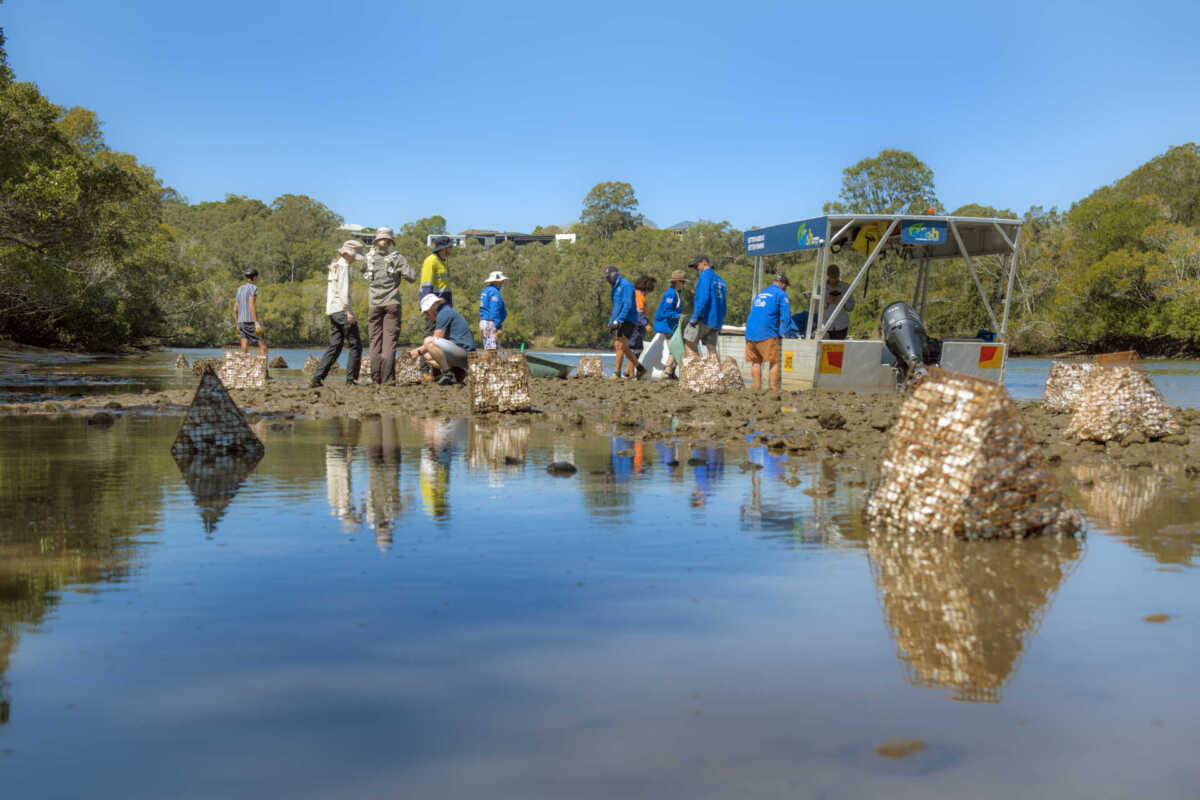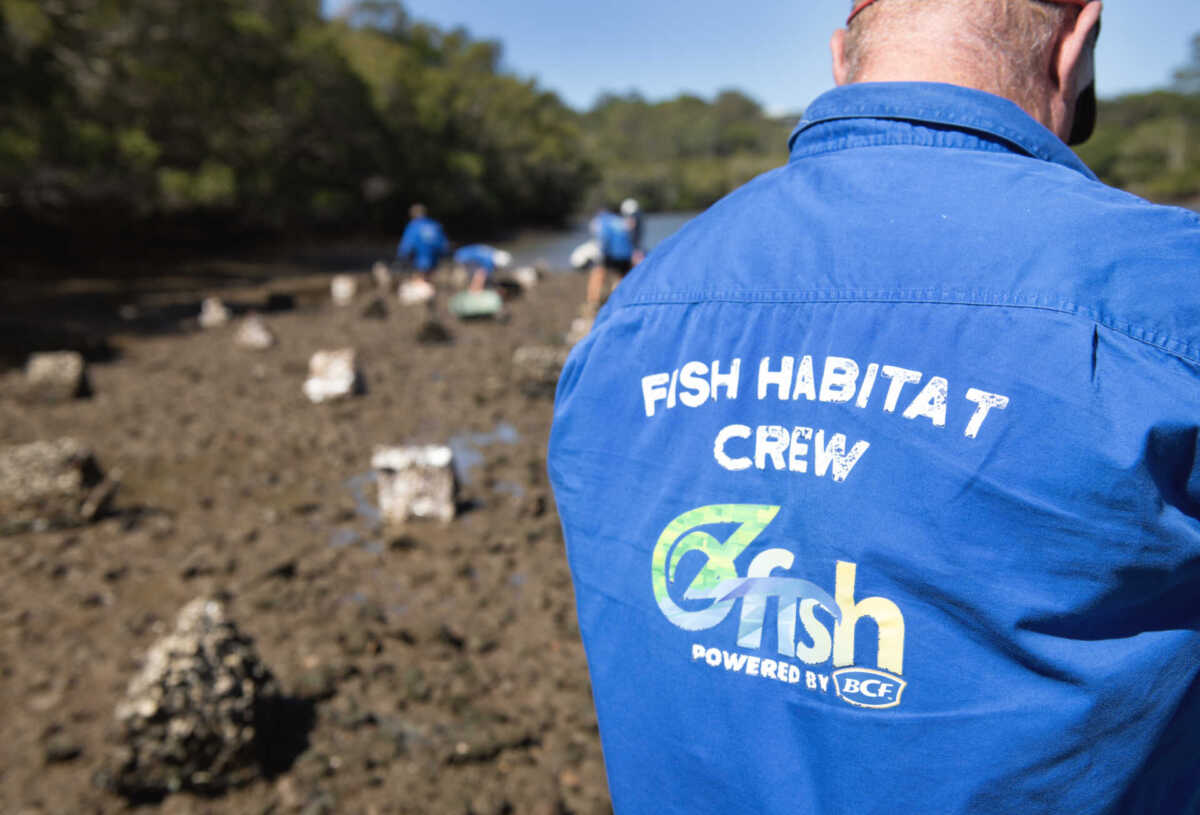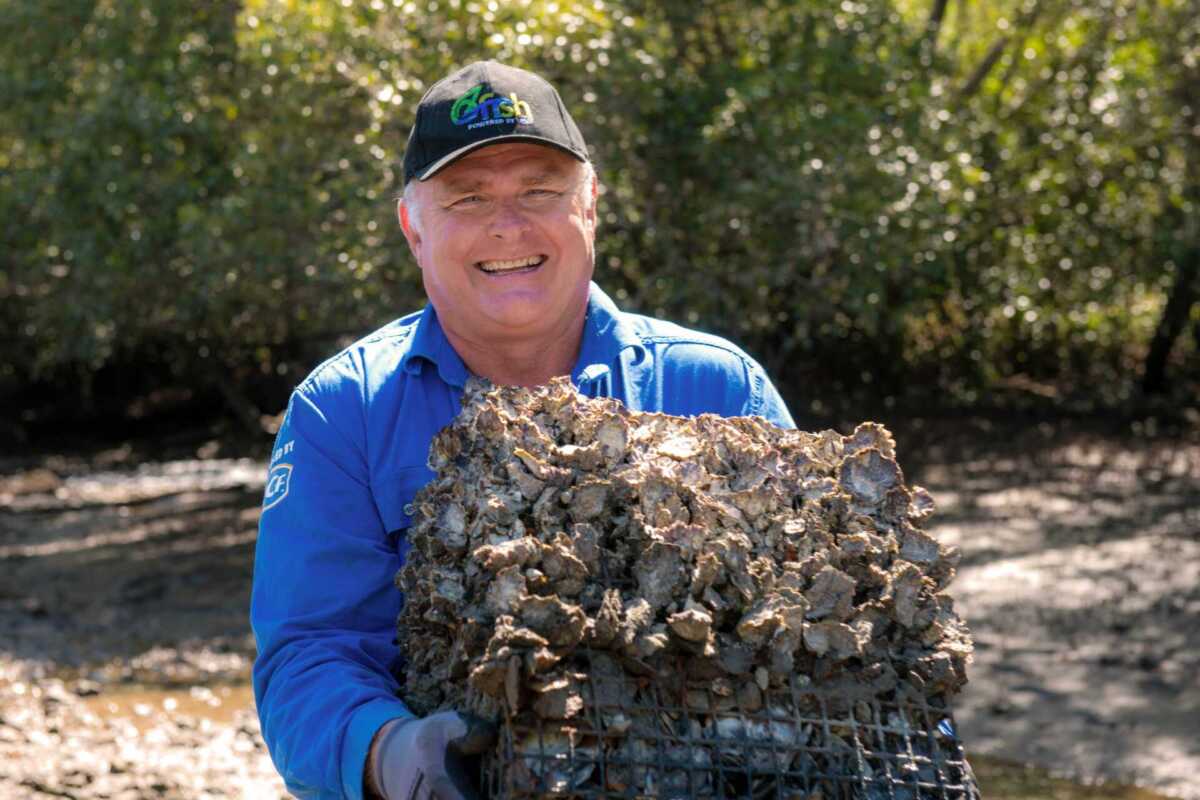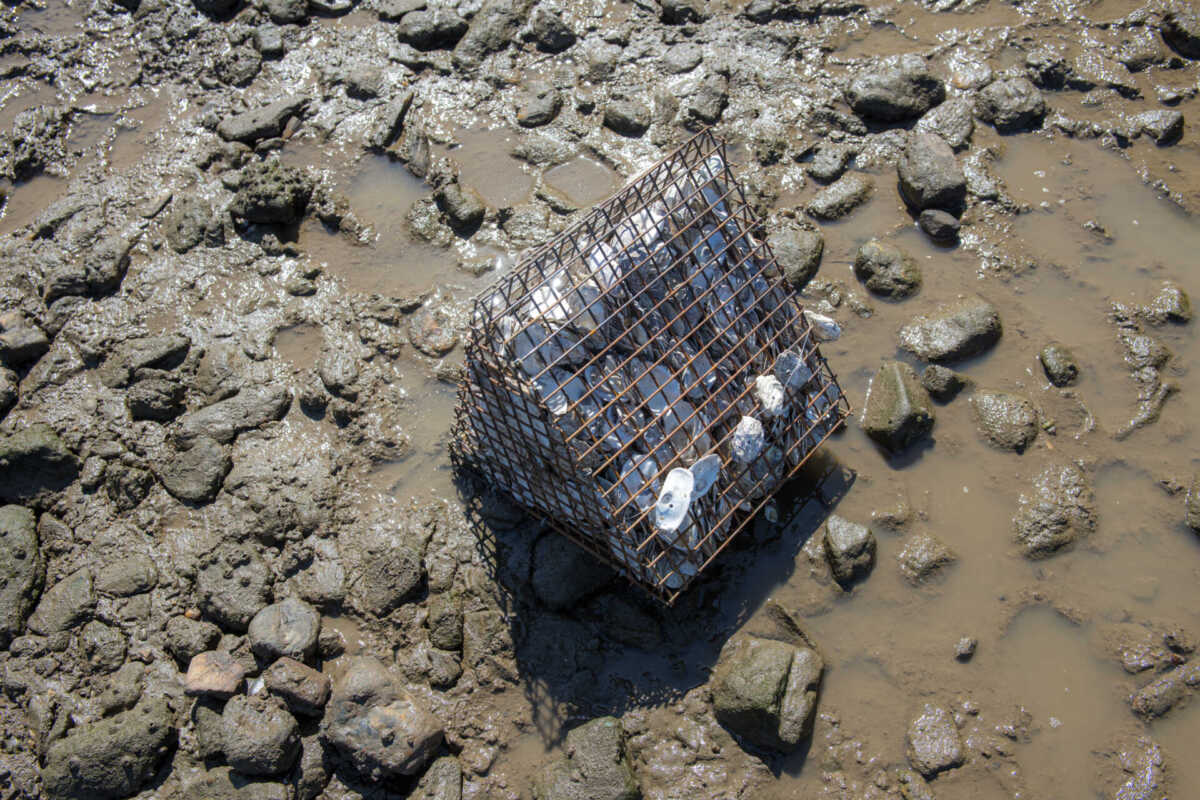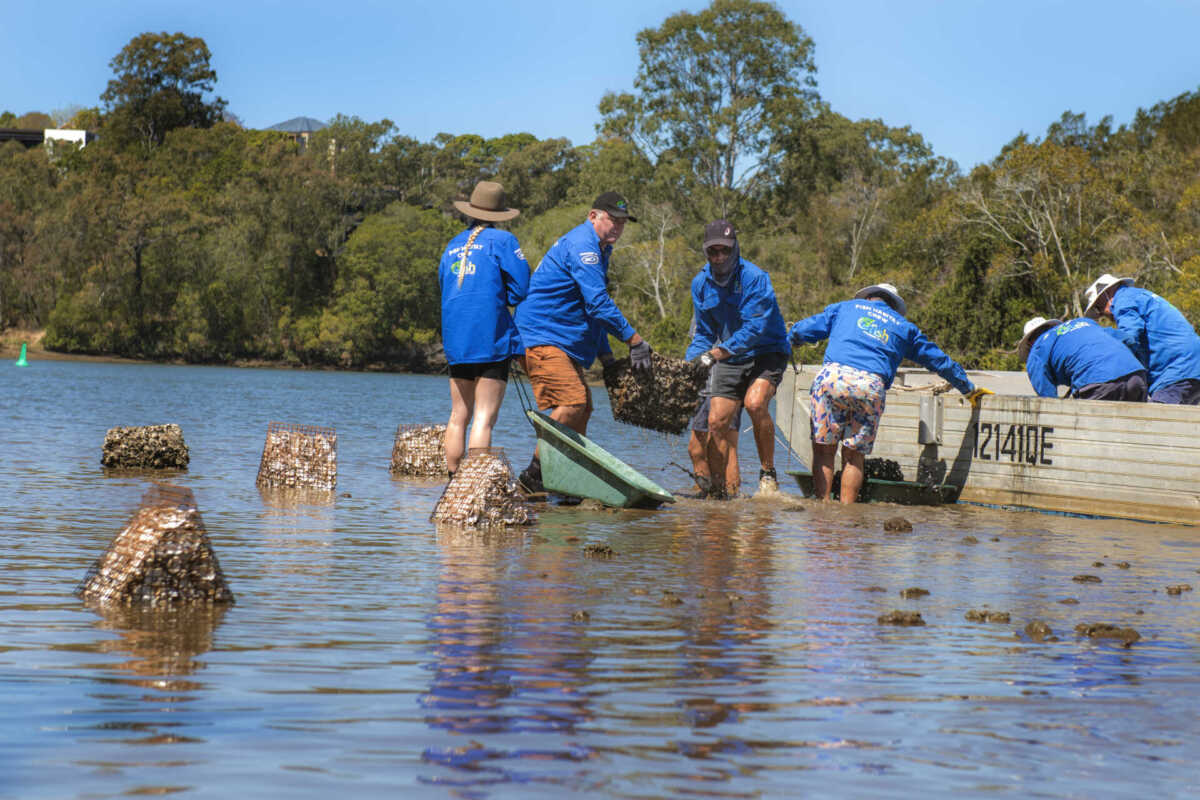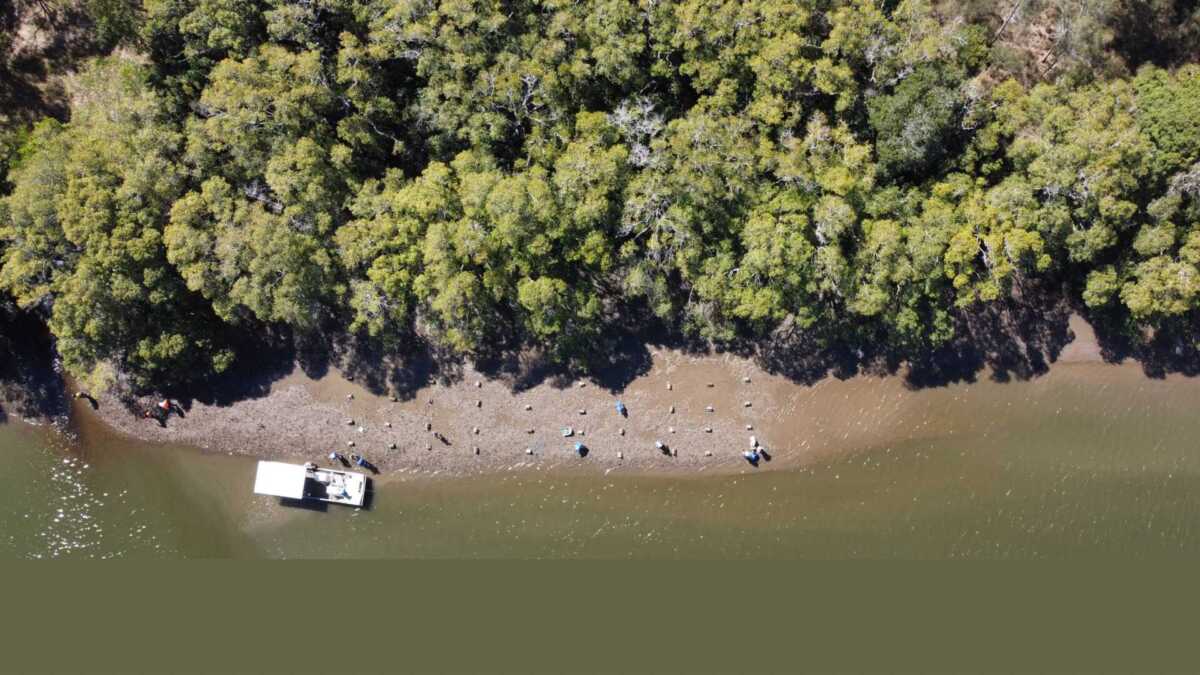Pioneering project investigates nature-based solution to nutrients in waterways
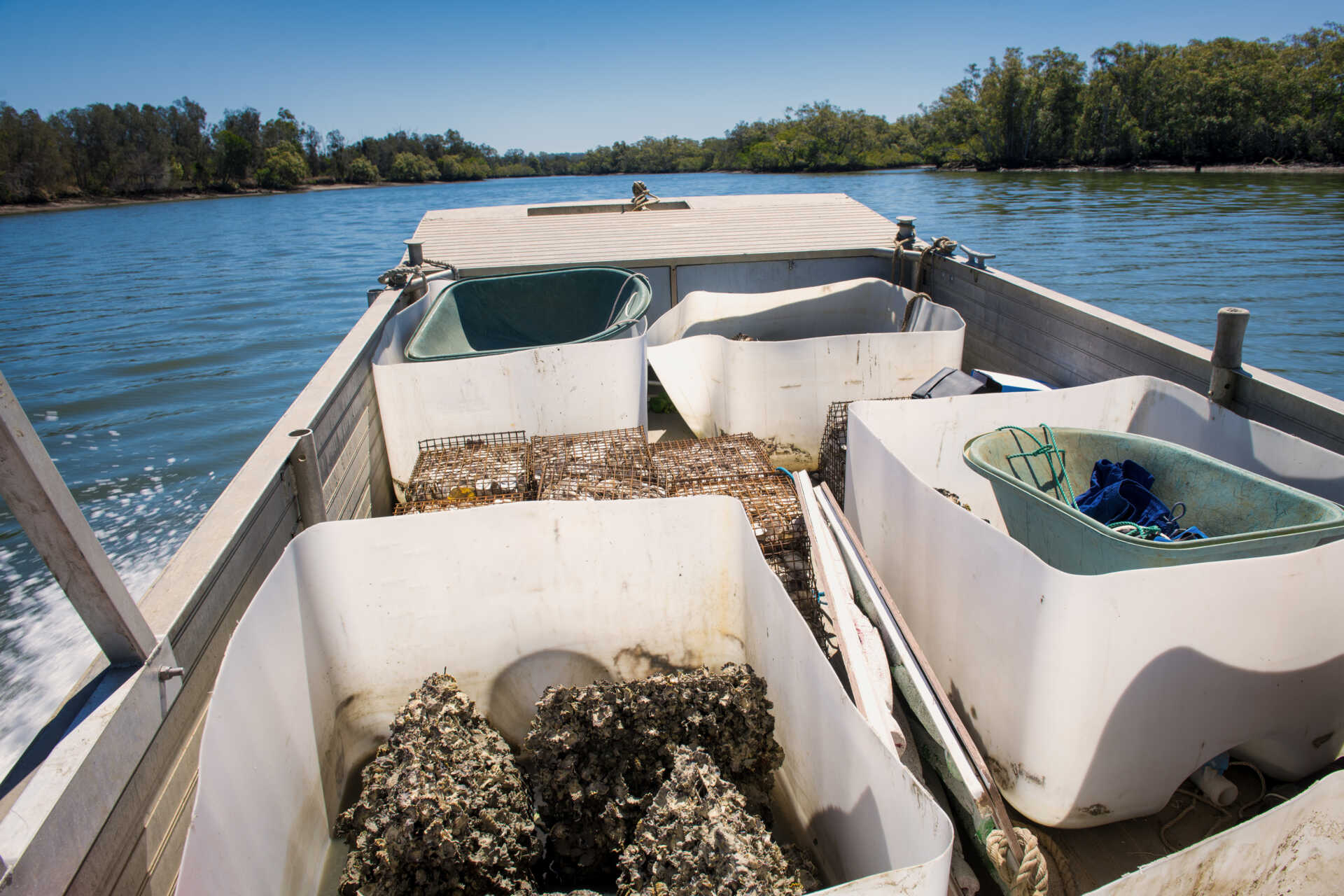
Researchers are hoping to uncover a nature-based solution to the problem of nitrogen in Australia’s waterways with a pioneering trial at the North Pine River, north of Brisbane.
Restoring oyster reefs could be the answer to removing nutrients in waterways and a joint project between OzFish Unlimited – Australia’s fishing conservation charity, Unitywater, Healthy Land and Water and the University of Sunshine Coast will study their effectiveness over the next five years.
OzFish has been dedicated to restoring shellfish habitat in Moreton Bay for several years and this project at North Pine River targets the removal of excessive nutrients in the waterway.
“Unitywater’s commitment to net zero includes an ambitious goal of ensuring all nutrients from wastewater are diverted or offset from waterways by 2040,” said Unitywater Acting Executive Manager Sustainable Infrastructure Solutions Ivan Beirne.
“Through continually optimising our operational processes, last year we reduced the volume of nitrogen returned back to the environment across all of our networks and phosphorus, but we want to do more.”
Mr Beirne said Unitywater was continuously looking for ways to reduce its operating footprint and supporting the natural environment to beneficially reuse water.
Purpose-built Robust Oyster Baskets (ROBs) were deployed recently at a site near Murrumba Downs Wastewater Treatment Plant.
Half of the ROBs were unseeded – filled with clean oyster shells – while the rest were transported from OzFish’s oyster lease on the eastern side of Moreton Bay where they had been catching baby oysters, known as spat and naturally growing for the past three years.
Now that the shellfish reefs have been placed at the intertidal zones of the North Pine River, Dr Ben Gilby, a senior lecturer and esteemed expert in marine ecology, fish biology, and marine ecosystem management at the University of Sunshine Coast, will lead a team of researchers to monitor them to see what nutrients the reefs can sequester.
Shellfish provide many ecosystem services; a single oyster can filter as much as a bathtub of water per day. They also protect our coastlines, sequester carbon, enhance fish productivity and hold significant cultural value.
The ROBs, which form natural shellfish reefs, provide a habitat for oysters and other shellfish and invertebrates to colonise and thrive.
Robbie Porter, OzFish’s senior project officer for shellfish reef restoration, said it was not an easy task to relocate the ROBs because they had become very heavy at the lease.
“They’ve well over doubled, nearly tripled in weight – that’s all oysters, animals and shells growing in and on them,” he said.
It is hoped that rebuilding shellfish reefs will naturally take nutrients out of the water and transfer it into the soil.
“We dump countless litres of nutrients, including nitrogen, into our waterways,” Mr Porter explained.
“Nitrogen is also evident in run-off from farming activities. It can be very detrimental to fish habitats because you can get algal blooms and high algae areas mean that oysters have fewer areas where they can grow on.
“The phrase we’ve been using to describe this project is that we‘re researching if a nature-based solution for removing nitrogen could be oysters.”
Mr Porter said it was a fantastic opportunity to see how the seeded ROBs fare in an area where shellfish reefs probably naturally occurred centuries ago.
“It will be really interesting having the new ROBs out there as well as the ones that are alive and growing,” he said.
“This is a pioneering project. We just don’t know what the results will be, but we’re excited to see their potential.”
If successful, the project holds the potential to reshape the future of shellfish reef restoration and wastewater treatment practices throughout the country.
This project will be delivered by Unitywater in partnership with University of Sunshine Coast, Healthy Land and Water and OzFish Unlimited. It is also supported by BCF – Boating, Camping, Fishing.

